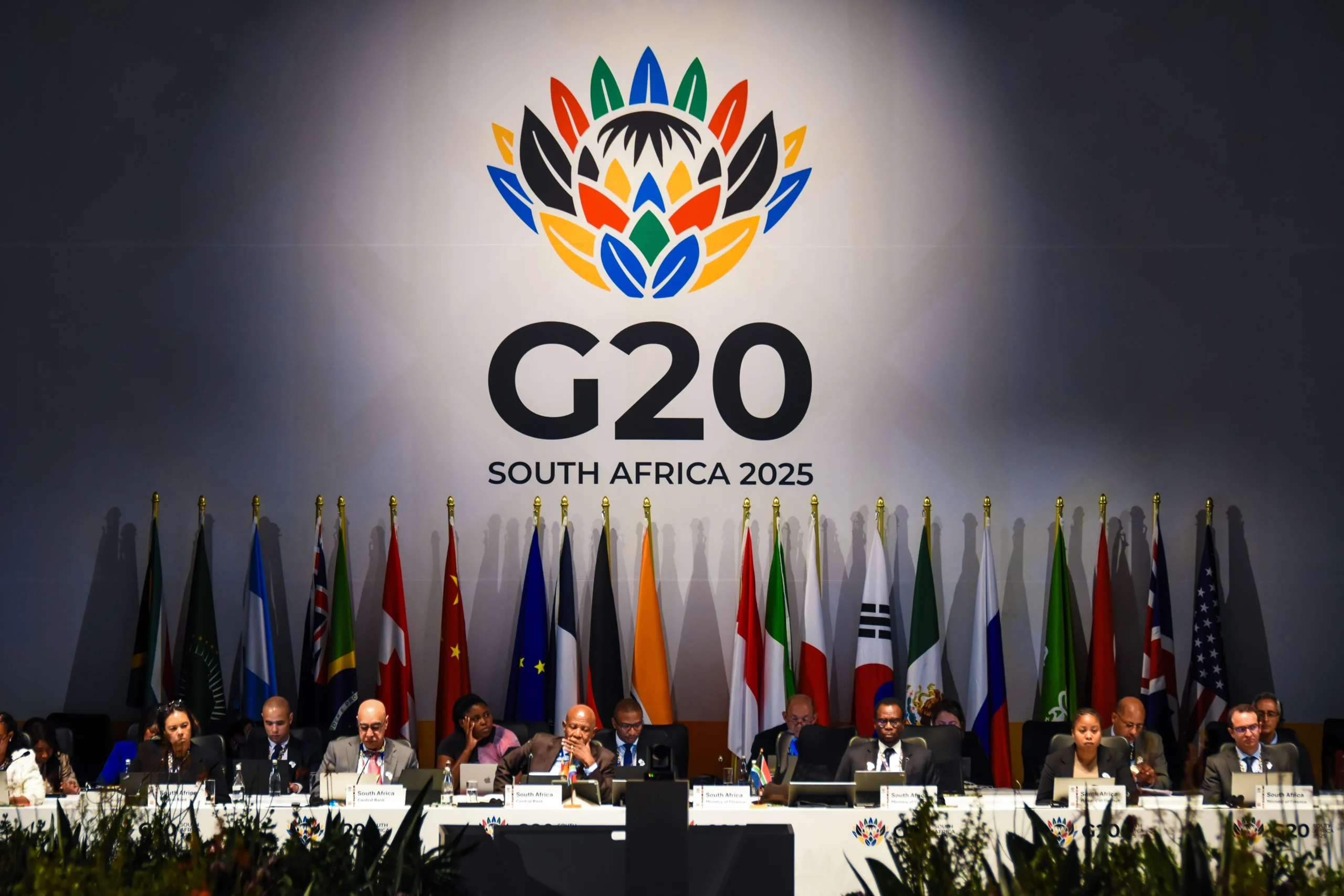Global financial anxiety is rising again, and this time it is not coming from a single stock market or one struggling economy, but from the world’s top financial watchdog itself.
The G20 Financial Stability Board (FSB), which monitors global risks on behalf of the world’s largest economies, has sounded the alarm over what it calls a “potentially disorderly market correction.” The statement, issued ahead of the G20 finance ministers’ meeting in Washington, warns that soaring asset prices, political instability, and rising debt could combine into a perfect storm for the global economy.
A Warning From the Top
In a letter to the G20, Andrew Bailey, Chair of the FSB and Governor of the Bank of England, said that “market valuations may be out of line with economic fundamentals, leaving the system vulnerable to a sharp repricing of risk.”
He emphasized that despite reforms following the 2008 crisis, financial buffers and oversight mechanisms remain uneven across nations. “We are entering a period of uncertainty where high leverage, geopolitical tension, and rapid technological shifts are interacting in unpredictable ways,” Bailey added.
According to Reuters, the FSB has identified several interconnected risks, including record-high global debt levels, stretched equity valuations, and the growing influence of non-bank financial institutions such as hedge funds and crypto platforms. These entities, which are less regulated than traditional banks, could amplify shocks if markets turn volatile.
Why This Matters to Ordinary Citizens
While such statements often sound remote from daily life, the consequences are anything but abstract. A sudden market downturn can cause ripple effects, from job losses to higher loan rates, that reach deep into household economies.
Dr. Njeri Mwangi, a financial economist at the University of Nairobi, explained that “when investor confidence collapses, capital flows out of emerging markets first. That weakens currencies, raises import costs, and can fuel inflation.”
For citizens, this translates to higher prices of essential goods, shrinking savings, and fewer job opportunities as companies scale back to manage risk.
In countries like Kenya, Nigeria, and South Africa, where public debt and reliance on foreign capital remain high, even small global shifts can have an outsized impact. A drop in foreign direct investment could slow infrastructure development, weaken local currencies, and strain government budgets.
A World Still Recovering
The warning also comes amid an uneven global recovery from pandemic-era disruptions. Inflation remains stubborn in many advanced economies, while developing nations continue to battle high borrowing costs.
According to the International Monetary Fund (IMF), global debt reached $313 trillion in 2025, surpassing pre-pandemic levels. Meanwhile, trade tensions between the United States and China are resurfacing, and several central banks are struggling to balance growth with financial stability.
Bailey’s letter urges governments not to abandon coordination. “The need for global standards and cooperation remains abundantly clear,” he wrote, calling for renewed commitment to transparent fiscal management and consistent implementation of financial regulations.
Citizens’ Role: From Awareness to Action
The G20 warning is not just a message for policymakers. It is also a wake-up call for citizens. Financial resilience begins at the individual level, and informed decision-making can help cushion the blow of global uncertainty.
Dr. Mwangi recommends a few practical steps for individuals:
Diversify income and savings. Avoid relying on a single asset or currency.
Reduce high-interest debt. Rising global rates could make loans more expensive.
Support local industries. Encouraging domestic production helps stabilize economies when imports become costly.
Stay informed. Awareness of economic policy shifts allows citizens to anticipate and adapt.
Community savings groups, small cooperatives, and digital financial education platforms are also playing a crucial role in spreading literacy and helping citizens navigate turbulent economic environments.
The Bigger Picture
The G20’s Financial Stability Board is shifting focus from creating new regulations to ensuring that existing reforms are consistently applied across all economies. This includes tightening rules on non-bank lenders, improving oversight of digital assets, and enhancing cross-border cooperation during crises.
However, the FSB also acknowledges that technology and geopolitical fragmentation have made financial stability a moving target. With the rise of decentralized finance, artificial intelligence-driven trading, and politically driven sanctions, the global market is more interconnected and more fragile than ever before.
A Global Call for Vigilance
Economists agree that while markets remain strong for now, the underlying cracks are widening. “The danger is complacency,” said Dr. Luis Ortega, a global markets strategist at the London School of Economics. “When everyone believes the market can’t crash, that’s usually when it does.”
The message from the G20’s stability watchdog is clear: vigilance must replace optimism.
For policymakers, that means discipline and cooperation. For citizens, it means awareness, preparedness, and smart financial choices.
The next global crisis may not come tomorrow, but the safeguards we build today will determine how well we survive it.
Sources: Reuters, Financial Stability Board (FSB) press statement, IMF, expert interviews (University of Nairobi and London School of Economics).



